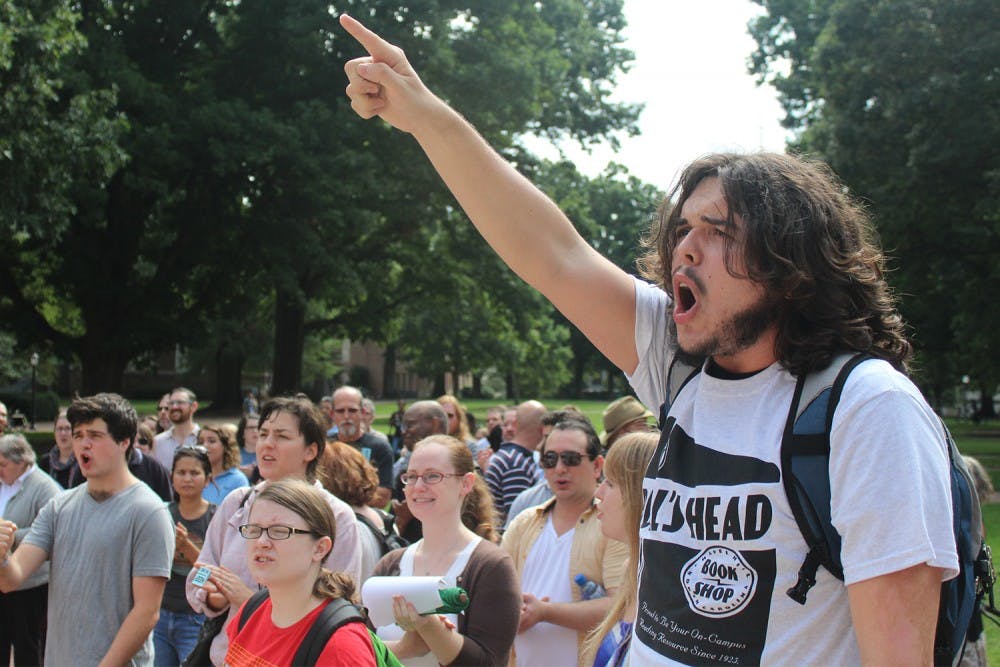The Cooperative Institutional Research Program at UCLA found a jump in first-year students who are likely to participate in student protests from 5.6 percent in 2014 to 8.5 percent in 2015.
Kevin Eagan, one of the researchers for the study, said for the past 28 years, the percentage of first-year students likely to protest has hovered around five to eight percent.
But Eagan cautioned against using the term “political activism” as a catch-all for student protests, because students could be protesting nonpolitical issues such as sexual assault or tuition hikes.
Graeme Robertson, a political science professor at UNC who specializes in political protests, said in an email that this increase could be attributed to many reasons, particularly economic ones brought on by large student debt and a deficit of opportunities.
“This is coupled with a much clearer critique of inequality and the boom and bust economy that has emerged since the great recession of 2009 — moreover, students today see examples of protests internationally and in the U.S. with the Occupy and Black Lives Matter campaigns,” he said.
At UNC, Vishal Reddy, co-president of the Campus Y and a member of The Daily Tar Heel’s editorial board, said he has seen student protests have an impact on campus in recent years.
“The Real Silent Sam (Coalition)’s work with contextualization of campus materialized in a huge (Board of Trustee’s) initiative,” Reddy said. “While the end results may not have been exactly what RSSC had intended when they began organizing, there’s no doubt that it’s their work that initiated these larger conversations about our campus’s history.”
Robertson said it is exciting to see students engaging in protests more, regardless of whether the protests can be termed “slacktivisim” — activism involving minimal effort.



